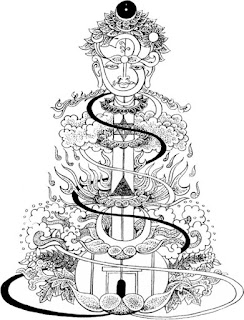Understanding Krishna as the Prime Being in Hinduism: A Challenge to Polytheism
Understanding Krishna as the Prime Being in Hinduism: A Challenge to Polytheism
Introduction
Hinduism is often characterized as a polytheistic religion, with a rich tapestry of deities, each representing various aspects of life and the cosmos. However, a deeper examination reveals a different perspective, especially when considering the teachings of various sects and spiritual leaders. Many of these traditions position Krishna not merely as one among many gods but as the Supreme Being, encompassing and transcending all deities. This understanding challenges the simplistic view of Hinduism as merely polytheistic and invites a more nuanced exploration of its theology.
The Concept of Krishna as the Supreme Deity
Krishna, particularly in his portrayal within the Bhagavad Gita, is often recognized as the ultimate reality, the Paramatma, or Supreme Soul. He embodies the synthesis of all divine qualities and serves as the source of creation, sustenance, and destruction. This conception is echoed in various Hindu texts, where Krishna is not just another god but the essence of the divine itself.
Acknowledge by Other Deities: Numerous scriptures, including the Puranas, depict other deities—such as Kali, Shiva, and Vishnu—acknowledging Krishna’s supreme position. For instance, in the Vishnu Purana, Lord Vishnu himself states that Krishna is the original deity from whom all others emanate. Similarly, the Shiva Purana recognizes Krishna’s divine nature, indicating that even the mighty Shiva ultimately pays homage to him.
The Teachings of Various Sects: Various sects within Hinduism, such as the Gaudiya Vaishnavism, emphasize Krishna as the source of all spiritual manifestations. The writings of leaders like Chaitanya Mahaprabhu further highlight Krishna's unique position as the Supreme Personality of Godhead, supporting the idea that all other deities are extensions or manifestations of Krishna’s divine essence.
The Role of Devi and Shakti: In many texts, goddesses such as Kali and Durga are described as manifestations of Shakti, the divine feminine energy. This energy ultimately leads back to Krishna, reinforcing the notion that all deities, regardless of their individual characteristics and roles, are intrinsically connected to Krishna.
The Pantheon Around Krishna
The pantheon of Hindu deities, while extensive, often revolves around the core teachings that Krishna embodies. This leads to several implications:
Unity Amidst Diversity: The vast array of deities in Hinduism can be seen as various expressions of the same ultimate reality. Each deity represents different facets of existence and paths to the divine, converging in the ultimate truth that Krishna is the essence of all.
Bhakti and Personal Connection: The bhakti (devotion) movement further emphasizes a personal relationship with Krishna. Deities like Rama, Radha, and others are often venerated in connection with Krishna, portraying them as integral aspects of his being. This not only shows the interconnectedness of these figures but also promotes a personal and emotional approach to spirituality.
Philosophical Interpretations: Various philosophical schools within Hinduism, such as Advaita Vedanta and Dvaita Vedanta, provide differing perspectives on the nature of divinity. However, they often converge on the idea of Krishna as the ultimate source. Even in the dualistic interpretations, Krishna is revered as the Supreme Lord, guiding devotees toward liberation.
Conclusion
The understanding of Krishna as the prime deity in Hinduism offers a compelling counter-narrative to the view of Hinduism as merely polytheistic. By recognizing Krishna's unique position and the acknowledgment of this supremacy by other deities and various sects, we arrive at a richer, more profound understanding of the Hindu spiritual landscape. This perspective not only unifies the diverse pantheon of Hinduism but also highlights the intricate relationships between its deities, leading to a comprehensive appreciation of the divine.
In essence, acknowledging Krishna as the ultimate reality challenges the superficial categorization of Hinduism and invites both practitioners and scholars to explore the depth and complexity of its theology, offering pathways for understanding and connection with the divine that transcend simplistic labels.


Comments
Post a Comment